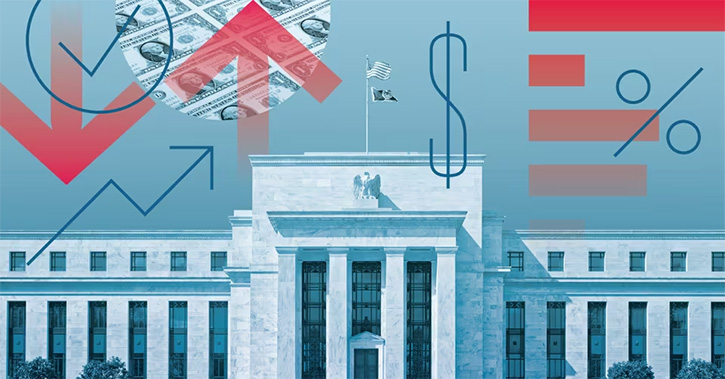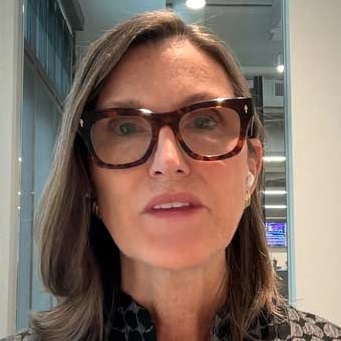Emma Wall: Hello, and welcome to the Morningstar series, "Market Reaction." I'm Emma Wall and I'm joined by Fidelity's David Buckle to talk about what happens next for interest rates.
Hello, David.
David Buckle: Hello.
Wall: So, yesterday we had a rate cut from the Bank of England. I suppose the big question is, what happens next?
Buckle: Another one. He announced that he was intending to do one more rate cut before the end of the year if economics pan out as he expects, but he did say he was going to stop there. He doesn't believe in negative rates. That doesn't mean the end of accommodation. It probably means more QE programmes rather than further rate cuts.
Wall: So when you say another rate cut, what are we talking? Are we talking 0.1%?
Buckle: He will take it just above zero. He won't go exactly to zero. There's technical reasons for that. But we should view it as taking rates to zero.
Wall: And he said that he saw under no circumstance would there be a reason to go to negative rates. What makes the U.K. situation different then from what we see in Japan and in Europe where they have seen a reason to go negative?
Buckle: I think that's the exact reason that he is looking at that situation and he says it's damaged the financial system which is going to damage the economy. Therefore, I don't want to follow suit.
Wall: And of course, negative rates are one lever. Rates indeed are one lever, but it wasn't the only thing he did yesterday. He also announced a QE bond buying programme, $60 billion for gilts, $10 billion for corporate bonds. What happens after this load of QE? Do we get more of the same?
Buckle: If things don't improve, we get more of the same that we've moved into the same situation as all the other central banks around world. I don't think we should view it as a knee-jerk reaction. This was clearly thought out and planned before Brexit. In my opinion, it's probably an overreaction. It's a lot very quickly with not many data points to say we need that much at this point.
Wall: In Europe, of course, they have focused more on corporate bond buying. Do you think that's something that we'll see here in the U.K. or is this $10 billion going to remain a small portion of a larger QE programme?
Buckle: Well, it's difficult one to answer. On the one hand, it is a lot smaller than the European one, but then the U.K. corporate market is a lot smaller. So there will be liquidity issues. On the other hand, Carney himself said he thought that was going to provide more stimulus than the gilt buying programme and the committee, the monetary policy committee, voted 8-to-1 for the corporates but only 6-to-3 for the gilts, so probably more corporates rather than more gilt.
Wall: And you're right about it being a very small market for the corporate bond. I think he said in the press conference yesterday that only 150 issues were actually good enough quality in order to qualify for this corporate bond buying programme. What does it really mean for bondholders then, for bond investors?
Buckle: Well, it's a fantastic news for bond investors, especially corporate bond investors. Not only the Bank of England; you've got the ECB buying them; you've got Bank of Japan with a lot on their balance sheet; you've got the Federal Reserve saying whilst they aren't buying bonds, they are looking out for corporate bond yields as a part of their management of monetary policy. So, there's a huge safety net for corporate bond investors. So, for the investors, it's great news.
Wall: And of course, there was one other lever that he used, this funding for lending or term lending. What exactly is that and how does that benefit the economy?
Buckle: Yeah. That shouldn't be viewed as separate from or additional stimulus to the rest of the package. What he said was he wants to ensure that the rate cut finds its way through to you and I in the economy. Because what could happen is, although there is a rate cut at the Bank of England, the banks don't cut rates.
This programme was put in place to ensure that the banks do indeed cut rates. And rather unusually in the press conference he advised the consumers, if your bank isn't cutting rates, change bank because there's no reason for them not to with this TSF programme in place.
Wall: So, in the future, we should expect more of the same good news for bondholders perhaps not great news for savers?
Buckle: It's terrible news for savers. And this is why I'm not convinced these programmes are going to work that the idea being that you cut interest rates, so it forces people to spend rather than save because it's not worth not saving so much, but the reverse is happening because savers have been penalized for so long, they are forced to save more, save in higher riskier products and that is just going to continue on and on and on.
Wall: David, thank you very much.
Buckle: Welcome.
Wall: This is Emma Wall for Morningstar. Thank you for watching.




























